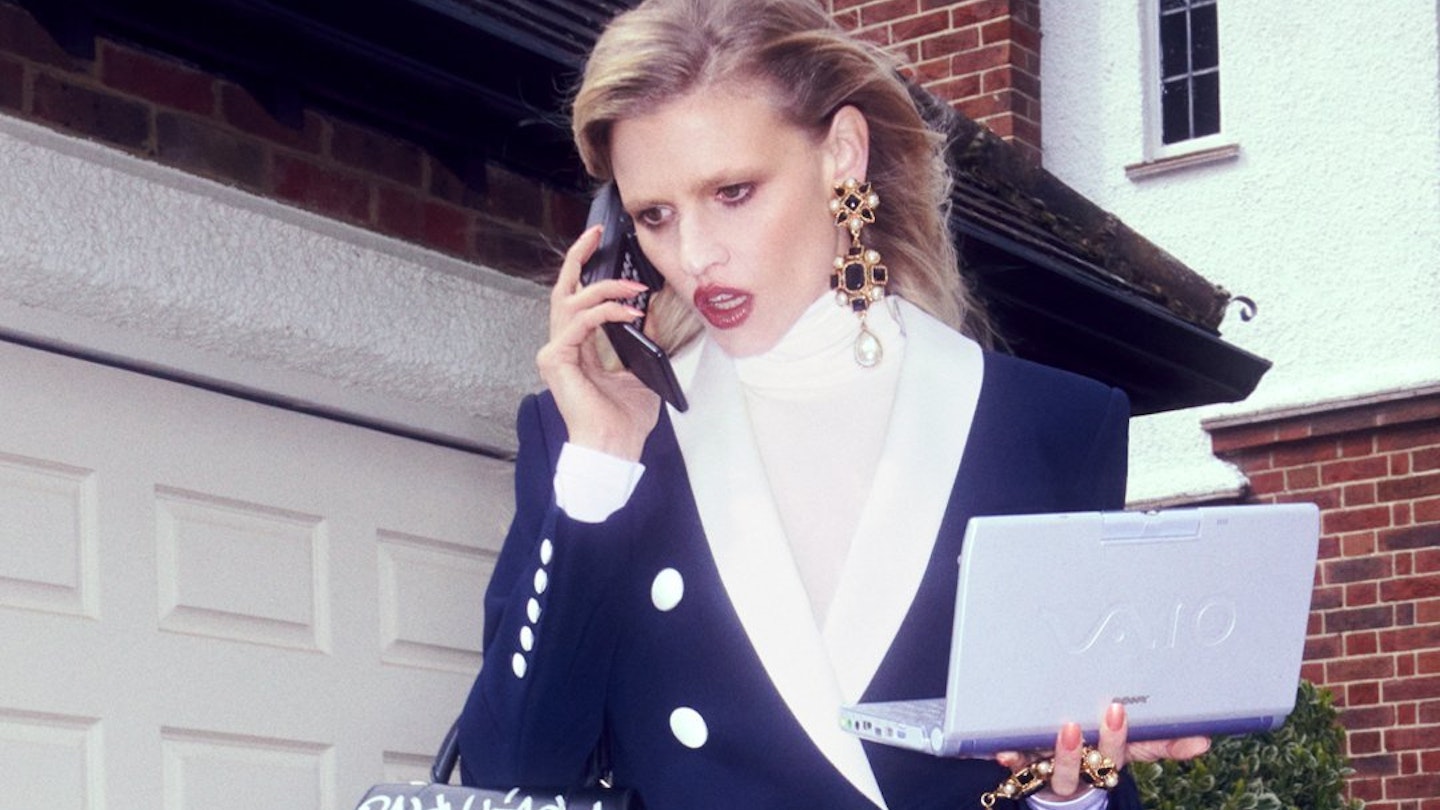What do Carrie Symonds, Holly Willoughby and Bridgerton’s Nicola Coughlan have in common? They’re all converts to fashion rental, which, while not a new concept, is one that is currently enjoying an incredible surge in interest. So too is the resale market, which, according to ThredUP, an online consignment store, is now growing faster than the mainstream retail sector and is actually expected to be bigger than fast fashion by 2029.
The innovation has come in making such services widely – and easily – available. For rental, platforms such as By Rotation, Hurr, Rotaro, Onloan, Front Row, Hirestreet and MyWardrobeHQ (where Carrie found her Costarellos wedding dress for £45) all make hiring designer and high street pieces effortless. Meanwhile, the likes of Depop and eBay are easily accessed via apps, and luxury consignment stores have opened online marketplaces for the first time, harnessing the power of social media to boost sales at a time when shopping – due to both Covid-19 and growing conversations about sustainability – had lost its sheen.
According to the Office for National Statistics, clothing sales slumped by 25% in 2020 as a result of the pandemic – the biggest drop in 23 years since records began. In contrast, the likes of By Rotation saw a 600% increase in rentals in the last few months of the year, with Hurr reporting an 850% year-on-year growth from the start of the pandemic. Since restrictions started to lift across the UK, this has only grown; Hirestreet had a record-breaking May in terms of the number of items dispatched, reporting that revenue is up by 273% month on month. The story is the same for its competitors, too.
‘The response to renting on the By Rotation app has been overwhelming,’ says Eshita Kabra, founder of By Rotation. ‘We have beaten all our forecasts for 2021, just in the month of May.’ At Onloan, co-founder and CEO Tamsin Chislett says she’s seeing a similar pattern. ‘Demand for rental has grown since the first announcement of lockdown easing; Onloan’s revenue has tripled since February. April was our best month ever and May has been significantly bigger again.’
Such success has attracted many designers to the idea of rental. Mother of Pearl launched The Full Circle, a rental service in partnership with Onloan. This allows you to rent Mother of Pearl pieces directly from its website and, if you fall in love with something, you’ll be able to buy it at a discounted price. ‘Rental is growing in popularity because people are becoming aware of the impact their clothes have on the environment and what it takes to produce them,’ says Amy Powney, creative director at Mother of Pearl. ‘We’ve done a lot of work around this, and pride ourselves on our transparency and the sustainability ethics of our supply chain, but I also wanted to take responsibility for our garments after they are produced.’
All of the time we’ve been spending watching TV has also boosted business, along with celebrity endorsement. Victoria Prew, co-founder and CEO of Hurr, says that The Crown’s influence ‘led to a 300% spike in searches for Princess Diana’s knit jumpers. And there was a 400% surge on The Vampire’s Wife after Holly Willoughby wore a rented dress live on This Morning.’
While promoting Bridgerton, Nicola Coughlan wore a series of outfits rented from By Rotation, organised by her stylist Aimée Croysdill. ‘I find rentals so brilliant for clients wanting to make responsible choices,’ says Aimée. ‘For myself, I often pick Cecilie Bahnsen as her dresses are perfect for events but too expensive to purchase.’ Front Row, meanwhile, has loaned a number of items to production houses that are filming TV projects and Hurr noticed that, in the days following the Prime Minister’s secret wedding to Carrie, interest in bridal rentals spiked by 263%. Some prospective brides have booked outfits for as far ahead as autumn 2022.
Of course, the overwhelming benefit of renting lies in its sustainability. For both the rental platforms themselves and their customers, the incentive lies in the fact that the majority of the negative impacts of fashion are avoided, while the enjoyment of receiving and wearing something new remains intact. Isabella West, CEO of Hirestreet, says, ‘Rental gives customers access to their favourite brands in a sustainable and affordable way. I see it as one of the key future channels for fashion.’ Isabella has also this year launched Zoa, a new technology she has developed to provide existing brands with the opportunity to integrate rental into their business, thus reducing waste. ‘If 8.4% of the 11,582 listed UK fashion stores turned to rental, we could realise the same carbon savings as planting 1.5 billion trees.’
That’s not to say that buying is out entirely. In fact, the resale market is booming. According to ThredUp’s annual resale report, the second-hand market is set to be worth £64 billion in the next five years, with much of this activity happening online. Thanks to platforms like Depop, second-hand is no longer a slight, rather it’s seen as something of a coup if you managed to unearth a vintage dress or a rare designer bag. Depop’s success lies in the fact it fused this idea with the feeling of community created by social media, resulting in a resale platform that now has over 29 million users across 147 different countries. Of those, 10.5 million are in the UK and most are under 26, with some even turning reselling into a career (see our feature, page 58).
No wonder, then, that Etsy bought the second-hand fashion app earlier this year for a whopping $1.6 billion, in a bid to target younger Gen-Z shoppers. Adwoa Owusu-Darko (@minisworld) is one of Depop’s top sellers and says she discovered the platform through a friend. ‘The ease of use compared to other re-selling platforms is in another league. I love that you can be as creative as you want and run a full-scale business on the go, all from your laptop or phone. It’s a platform that connects its users both on and offline, creating friendships and connections all over the world.’
Vintage fashion, too, is enjoying something of a renaissance. Jennifer Aniston wore a vintage John Galliano for Christian Dior dress to pick up her SAG Award last year. In July 2020, Princess Beatrice was married in a Norman Hartnell dress she borrowed from the Queen’s own archive. In the months that followed, Lyst reported that ‘vintage fashion’ generated an average of more than 35,000 monthly searches, while searches relating to ‘second-hand’ increased by 104%. This has no doubt been fuelled by the likes of Rihanna, Kendall Jenner, Miley Cyrus and Halle Berry, all of whom have recently been flaunting their own vintage treasures. Rihanna, following in Jen An’s footsteps, showcased a series of rare John Galliano for Dior pieces, as well as a coat from Chanel’s autumn/winter 1996 collection.
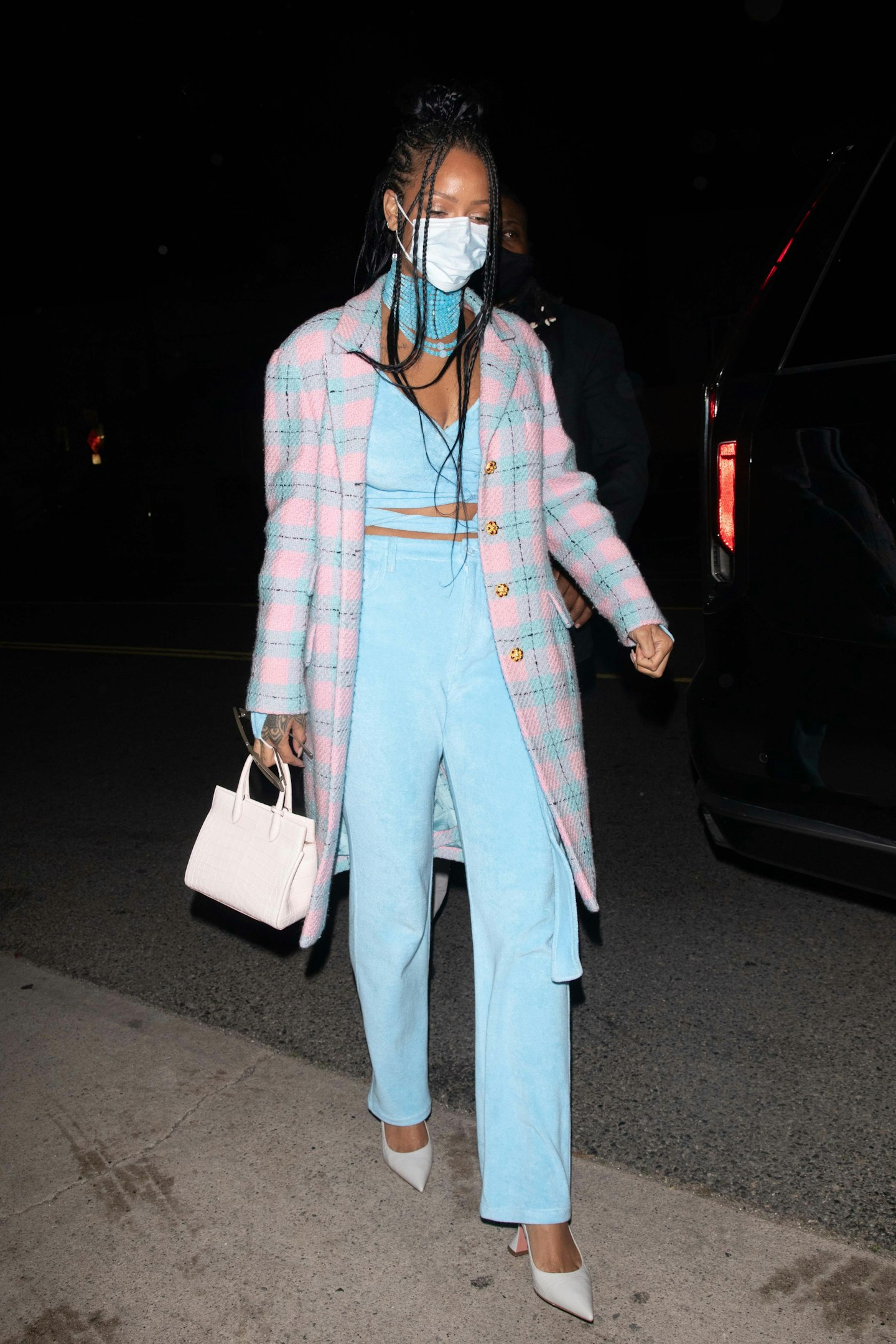
The very idea that one could source such rarefied wares from the comfort of the sofa has meant that several luxury consignment stores enjoyed their most profitable year during a global pandemic. Sellier Knightsbridge, for example, was forced to open an online store in May 2020 when its physical store was, for obvious reasons, closed. ‘Demand for pre-loved luxury has skyrocketed in the last 12 months. This is partly fuelled by the significant recent price increases of all the major superbrands, which have put buying brand-new increasingly out of reach for the average consumer,’ says Hanushka Toni, who founded Sellier with her mother, Dina Ibrahimova.
In the first month of opening the online platform, Sellier’s turnover jumped to over £90,000, which is expected to grow £5-£7 million in the next 12 months. And it’s largely thanks to designer bags, which generate 65% of the store’s revenue. It wouldn’t have been possible without Instagram, says Toni, who was surprised by the huge amounts people were prepared to spend. ‘Sales exploded during the last year. To the point where almost on a daily basis we were selling £10,000 bags through Instagram to buyers who had never seen them in real life but were watching our Stories and decided that lockdown was the time to invest in a Birkin.’
Resale has infiltrated mainstream fashion channels, too. Mulberry has introduced The Mulberry Exchange, designed to be a ‘circular economy programme’. Customers can have their existing Mulberry bags authenticated and appraised, with the opportunity to then put this value towards a new purchase. In turn, customers can buy the pre-loved pieces that have been restored in Mulberry’s workshop. Originally just an in-store service, it’s now available on Mulberry’s website and the label has launched online with Vestiaire Collective.
Selfridges has also been something of a pioneer in this arena. As part of its ongoing Project Earth initiative, the superstore offers both resale and rental, online and in-store. It initially partnered with Hurr to offer the first in-store rental service, where customers were able to try clothes on and have a more ‘traditional’ shopping experience and launched Selfridges Rental, offering pieces from Balmain to Burberry. In 2020, RESELLFRIDGES was born, a permanent in-store and online resale platform providing new ways to shop and sell pre- loved, vintage, collectable and archive products.
Something pre-loved or borrowed, it seems, is the new ‘new’.
SEE: The Best Fashion Rental And Second Hand Shopping Destinations
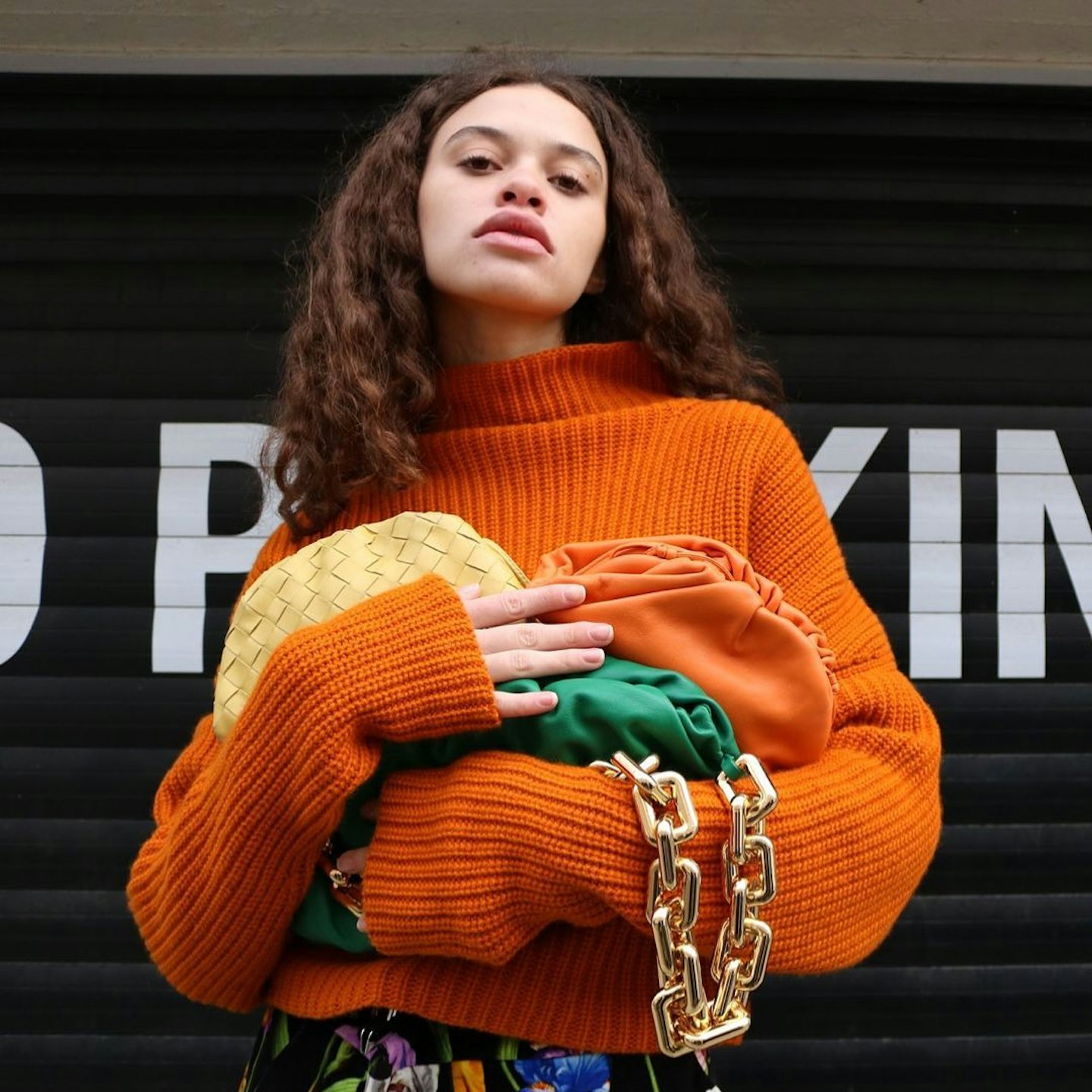 1 of 12
1 of 12Sign Of The Times
With more and more importance placed on shopping sustainably, if you're looking to buy and sell preloved designer clothing, bags, shoes and accessories, check out SOTT.
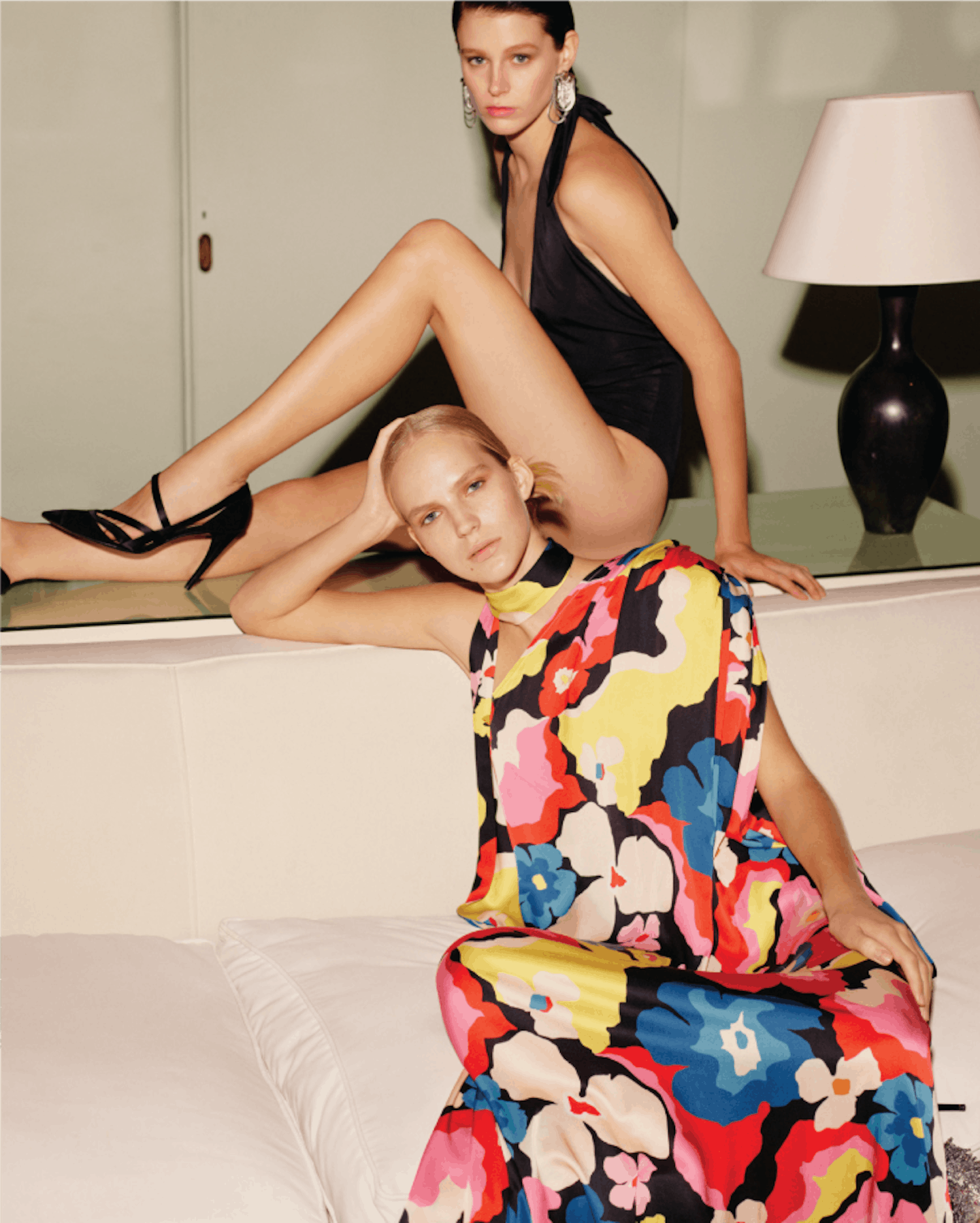 2 of 12
2 of 12DCEY
DCEY encourages customers to rent, mindfully shop and have access to environmentally sustainable products. Browse hundreds of styles from international brands such as Cult Gaia, Staud and Coperni.
 3 of 12
3 of 12NTH Collective
An online community where users can buy and sell high quality pre-loved items. Unlike buying new sustainable clothing or renting new pieces of clothing for a night, the NTH collective lets customers buy and sell existing premium clothes, significantly reducing carbon, water and waste footprints as well as negative societal impacts.
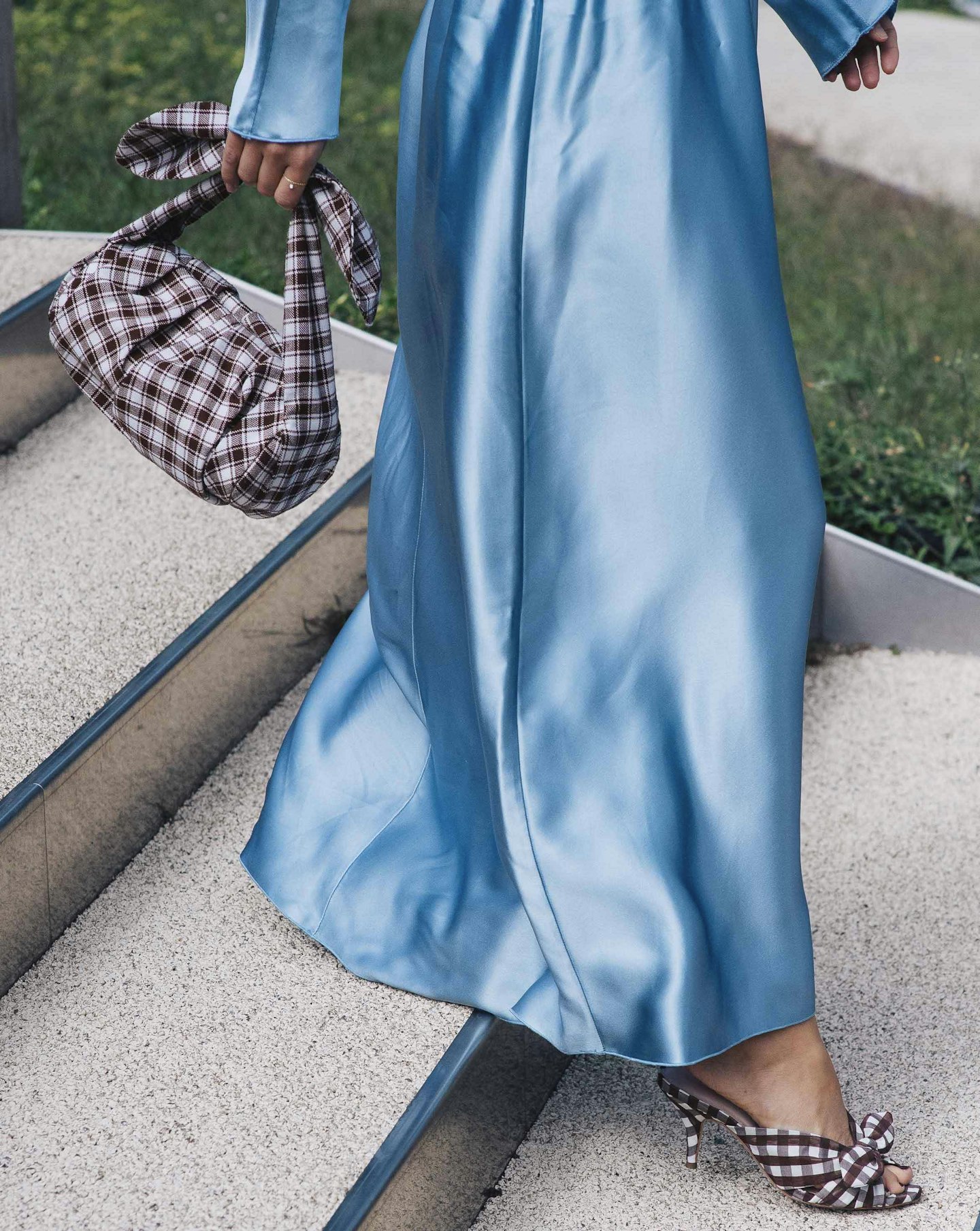 4 of 12
4 of 12Hurr Collective
The UK's first peer-to-peer wardrobe rental platform. HURR COLLECTIVE is for members to rent and lend their wardrobes, making economic and environmental sense. From Chanel to Uterqüe, there's something for every price range.
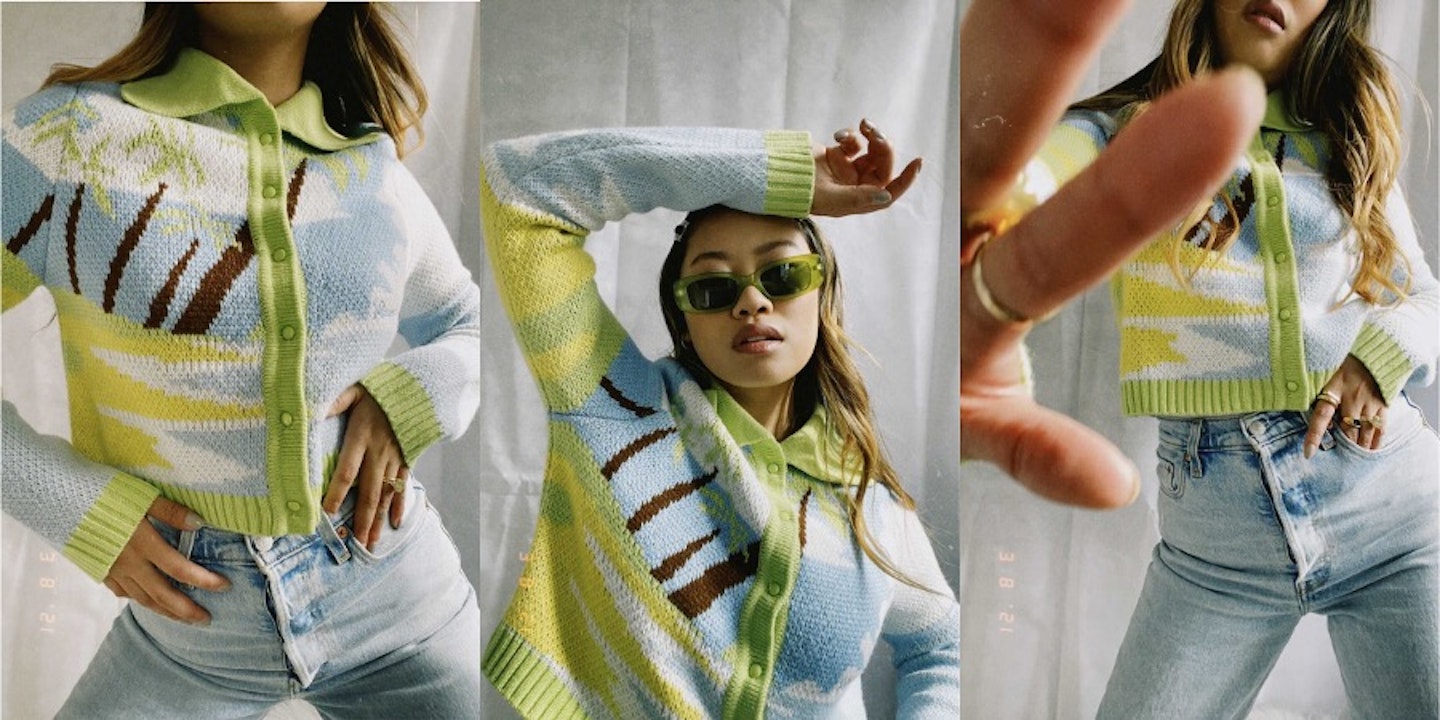 5 of 12
5 of 12Endless Wardrobe
Rent, Wear, Return. ENDLESS WARDROBE allows you to tailor your rental time. Choose from a 4, 10 or 16-day rental period. And, for anyone that's a bit clumsy, amazingly, you won't be charged for damage or stains. Red wine is your friend again.
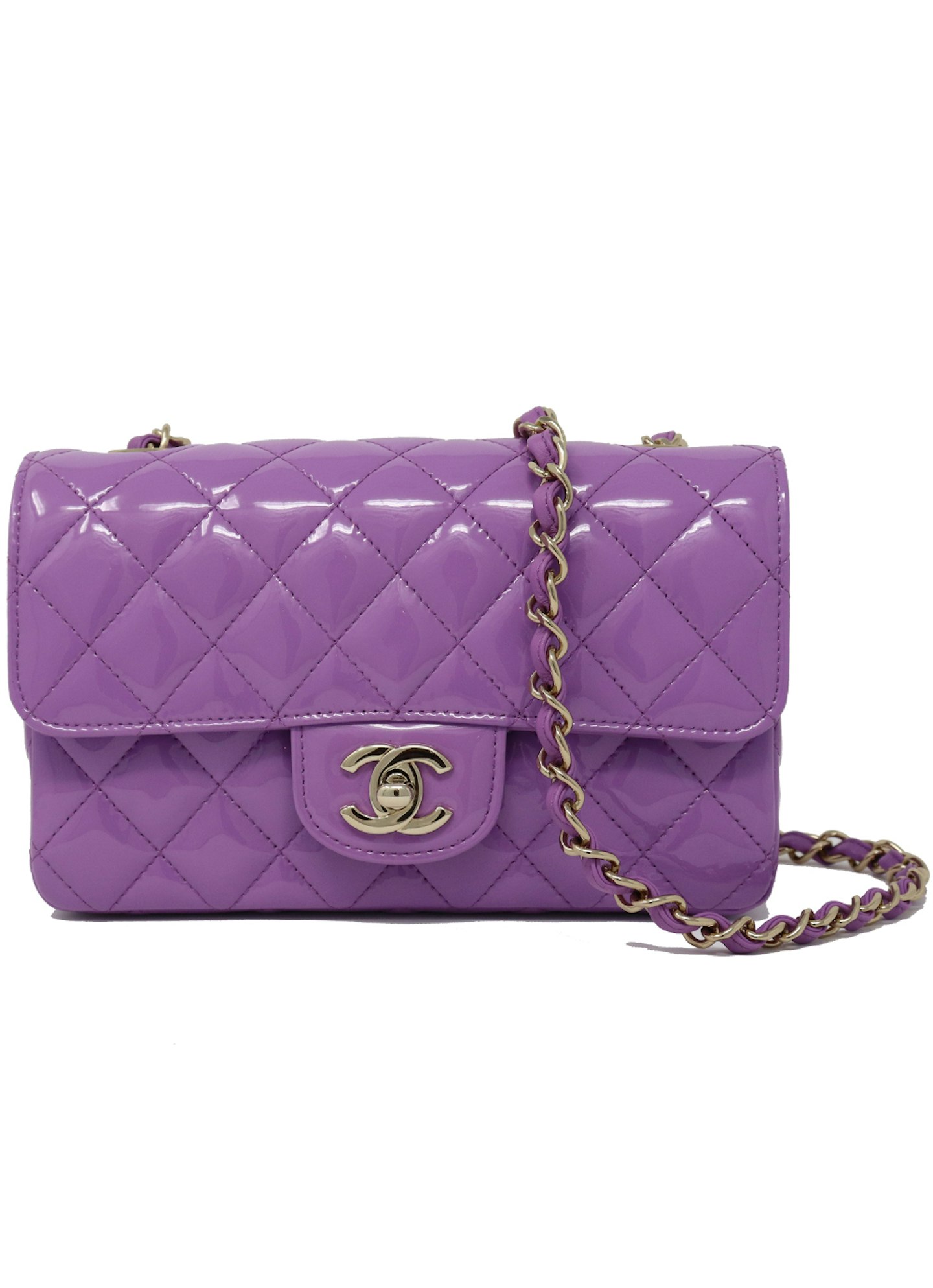 6 of 12
6 of 12Bagbutler
Take the first step towards sustainable fashion. Bagbutler specialises in handbags and accessories, giving you the opportunity to rent everything from Chanel bags to Dior jewellery.
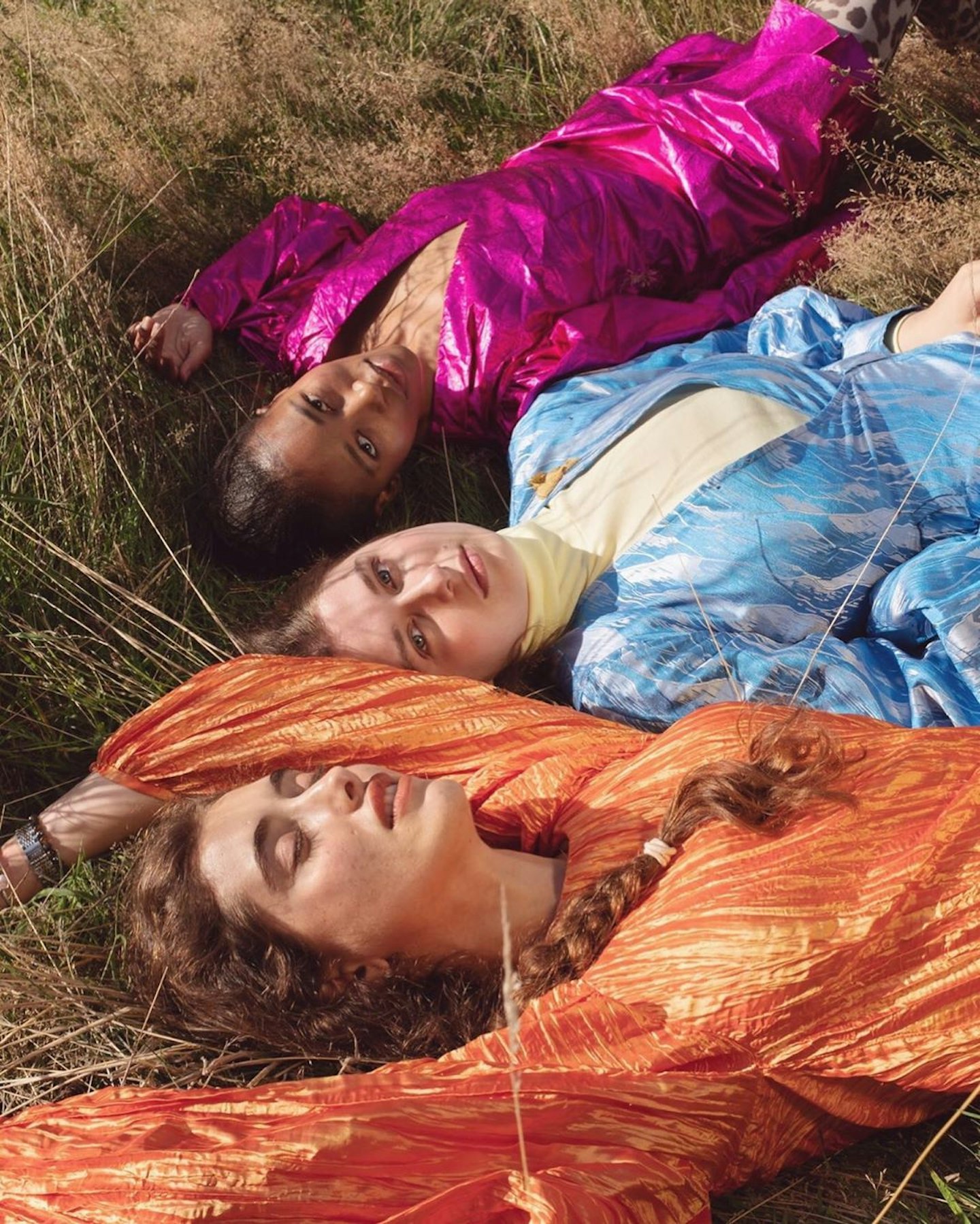 7 of 12
7 of 12Rotaro
Rent, Reduce, Repeat. ROTARO's carefully curated selection of contemporary luxury designers work for multiple occasions, work events, holidays or as a platform to discover new brands... Designers include: Rixo, Ganni, Reformation, Cult Gaia, Cecilie Bahnsen and Stine Goya, with weekly product drops. Items cost between £15 for a 4 day loan and £80 for a 12 day period, with the option to extend. ROTARO also offer a try at home service, where you can choose two dresses and return the one you don't wear.
 8 of 12
8 of 12FRONT ROW
#SeeItLoveItRentIt. FRONT ROW'S mission is to provide a lifestyle service that eliminates the age - old question "Will I ever wear this again?" Featuring up-and-comers and established favourites including Chanel, Fendi, Jenny Packham, Roland Mouret. FRONT ROW offer a rental period of five days, however this can be tailored to your needs.
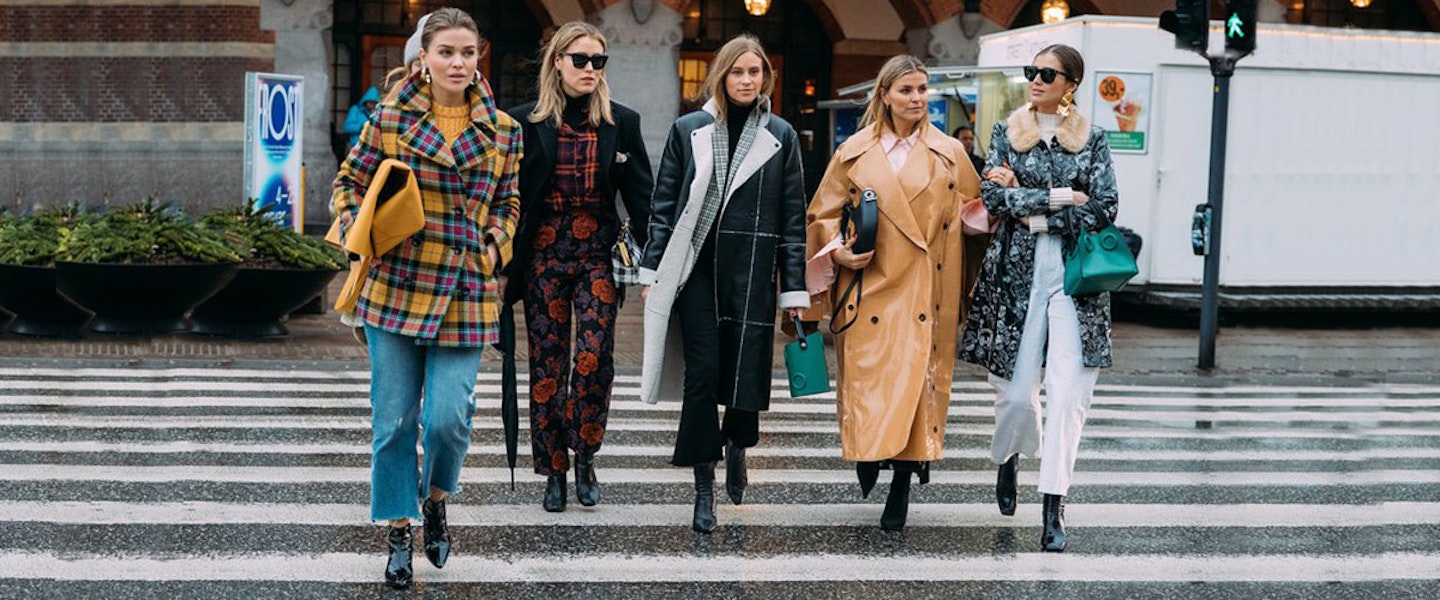 9 of 12
9 of 12My WardrobeHQ
Buy less, buy better, rent it out. MY WARDROBE HQ is a social community for buying, selling and renting designer items. Customers can shop womenswear clothing and accessories from the wardrobes of Poppy and Chloe Delevingne, Olivia Buckingham, Arizona Muse, as well as fashion stylists and influencers.
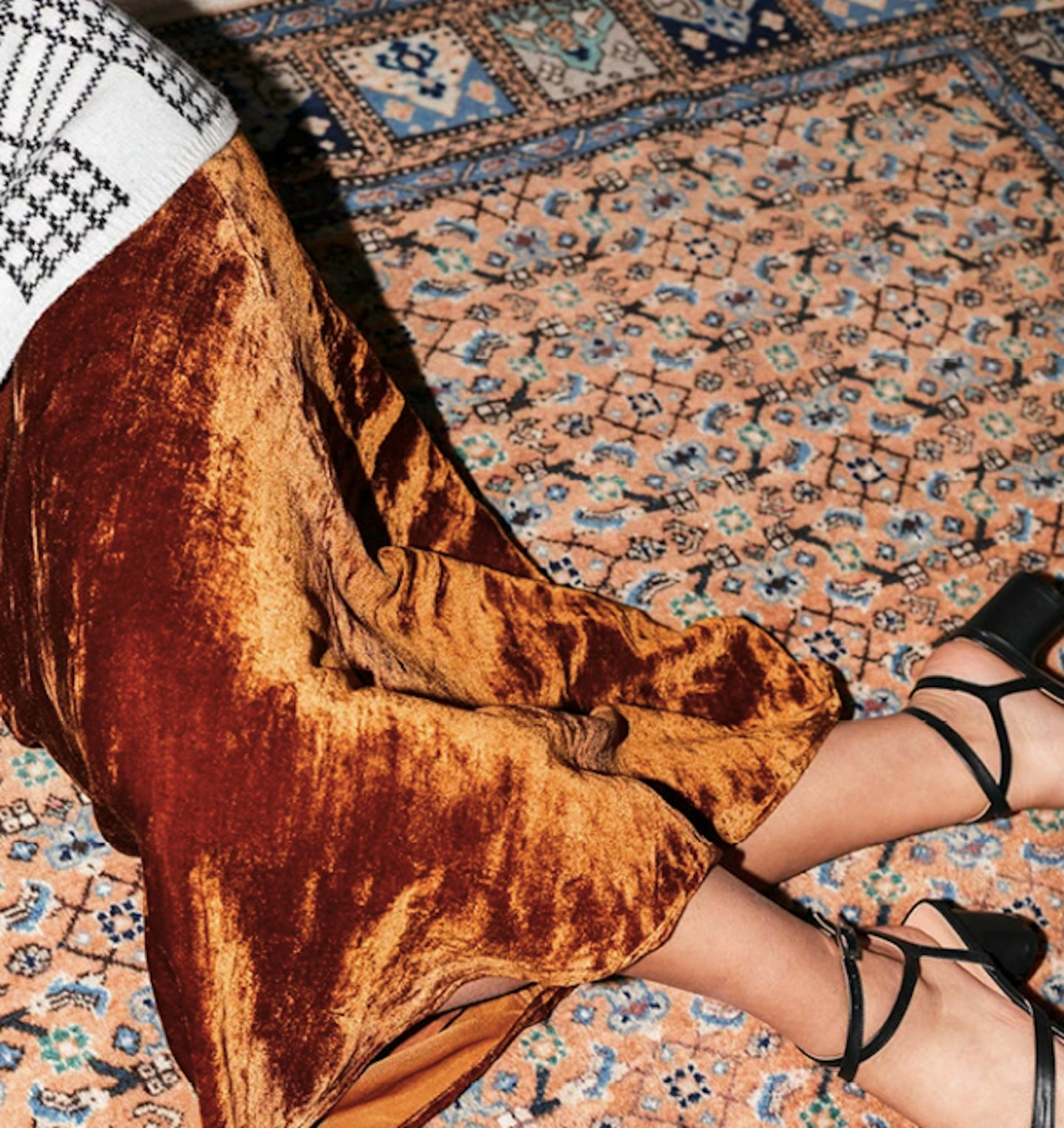 10 of 12
10 of 12Onloan
Cool clothes on subscription. ONLOAN was created by two girlfriends, with a shared mission to reduce waste, curate brilliant independent designers and reignite a love of clothes without the guilt.
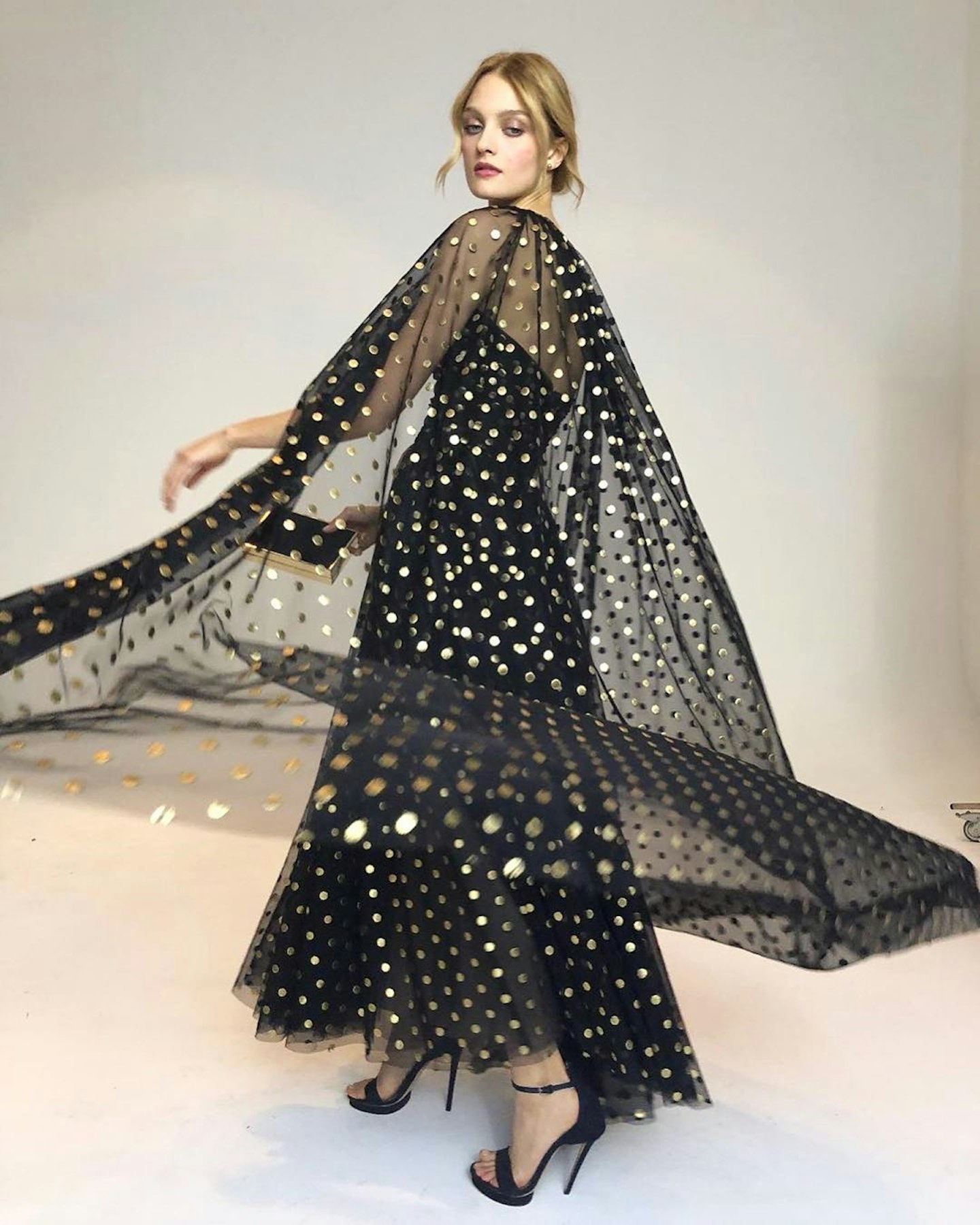 11 of 12
11 of 12By Rotation
Rotate your wardrobe at your fingertips. BY ROTATION is the UK's first and only peer-to-peer fashion rental app. No subscription fee and no waiting list. Do good for the planet, your wardrobe and wallet at the same time.
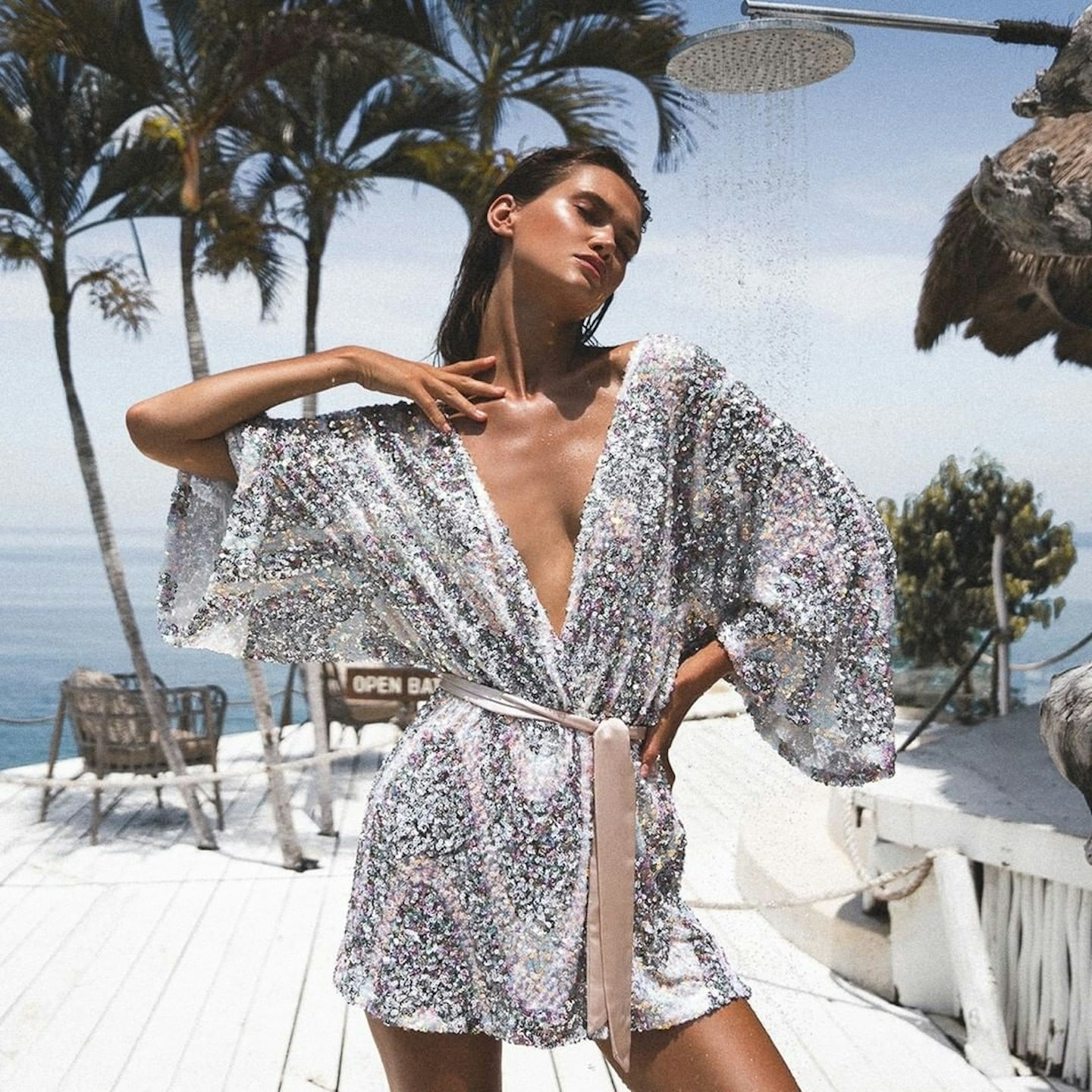 12 of 12
12 of 12Hirestreet
Own your style. Not your outfit. HIRESTREET might be a new rental platform, but it's already made a significant mark on sustainable premium fashion. The brand is conscious of building a community and empowering women is echoed in its broad range of sizes.
